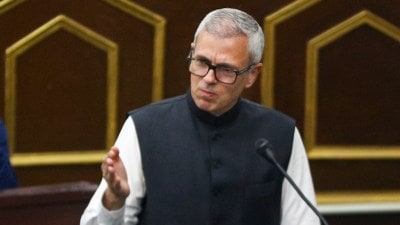Ananthakrishnan G. is a Senior Assistant Editor with The Indian Express. He has been in the field for over 23 years, kicking off his journalism career as a freelancer in the late nineties with bylines in The Hindu. A graduate in law, he practised in the District judiciary in Kerala for about two years before switching to journalism. His first permanent assignment was with The Press Trust of India in Delhi where he was assigned to cover the lower courts and various commissions of inquiry. He reported from the Delhi High Court and the Supreme Court of India during his first stint with The Indian Express in 2005-2006. Currently, in his second stint with The Indian Express, he reports from the Supreme Court and writes on topics related to law and the administration of justice. Legal reporting is his forte though he has extensive experience in political and community reporting too, having spent a decade as Kerala state correspondent, The Times of India and The Telegraph. He is a stickler for facts and has several impactful stories to his credit. ... Read More
Explained: How Adani Power won the battle with Rajasthan discoms in Supreme Court
The SC has directed power distribution firms owned by Rajasthan govt to pay Rs 3,048 cr with 9% interest to Adani Power Rajasthan Ltd, which had supplied power for them. What is the case, and the ruling?
 The Rajasthan government and Adani Enterprise Ltd signed a memorandum of understanding in March 2008 to set up a 1,200-MW coal-based power project near Kawai in Baran district. (Express Photo: Nirmal Harindran)
The Rajasthan government and Adani Enterprise Ltd signed a memorandum of understanding in March 2008 to set up a 1,200-MW coal-based power project near Kawai in Baran district. (Express Photo: Nirmal Harindran)
The Supreme Court on Friday directed power distribution companies owned by the Rajasthan government to pay Rs 3,048.63 crore with 9 per cent interest to Adani Power Rajasthan Ltd (APRL), which had generated and supplied power for them. It also stated that the discoms would otherwise be liable for contempt of court.
The Rajasthan government and Adani Enterprise Ltd signed a memorandum of understanding in March 2008 to set up a 1,200-MW coal-based power project near Kawai in Baran district. The estimated cost was approximately Rs.5,000 crore. As per the deal, the state had to facilitate supply of coal either from the central government or other sources, but it failed to do so. Therefore the company bought imported coal at a higher cost. Adani Power moved the Rajasthan Electricity Regulatory Commission raising a claim for the loss incurred from having to import coal.
The commission ordered on May 17, 2018 that Adani Power should be paid the difference between the cost of imported coal, as certified by an auditor, and the landed cost of domestic coal. The discoms challenged this order before the Appellate Tribunal for Electricity (Aptel), which upheld the commission’s order.
First round of court proceedings
The discoms argued in the Supreme Court that the memorandum of understanding with the state would be of no avail as it was the Centre that had to allot coal blocks. They also contended that the arrangement of fuel was the responsibility of Adani Power, which then cannot claim compensation for its inability to arrange domestic coal.
What did the Supreme Court say?
The Supreme Court on August 31, 2020 ruled for the Adani firm and upheld the commission’s order. Though Aptel, by an interim order, had directed the discoms to pay 70 per cent of the total Rs 5,344.75 crore within two weeks, the court reduced this to 50 per cent on October 29, 2018. Accordingly, the discoms paid Rs 2,426.81 to the company.
Second round of litigation before Supreme Court
Adani Power again approached the apex court saying the discoms had not paid the remaining amount even after the court’s order. The company also raised certain additional claims in the form of interest and a late-payment surcharge. The discoms contended that the company was entitled to Rs. 3155.22 crore, out of which only Rs 728.41 crore remained to be paid.
What did the Supreme Court rule on Friday?
The Supreme Court upheld Adani Power’s claim that it was due Rs 3,048.63 crore till November 2021, and directed the discoms to pay the amount with 9 per cent interest within four weeks. The court said if they failed to pay up, the discoms would have to appear before it on March 31, 2022 and face contempt-of-court proceedings.
Newsletter | Click to get the day’s best explainers in your inbox



- 01
- 02
- 03
- 04
- 05





































